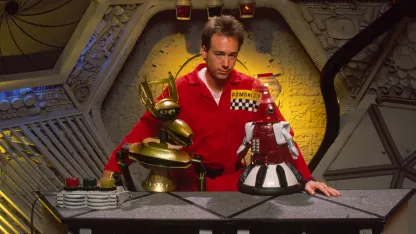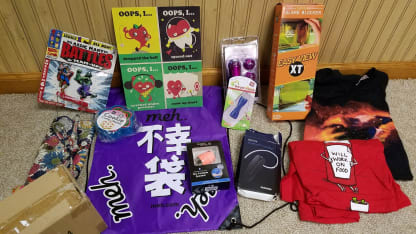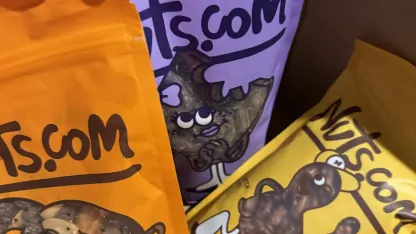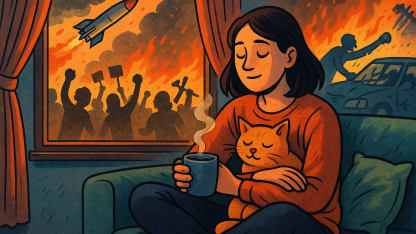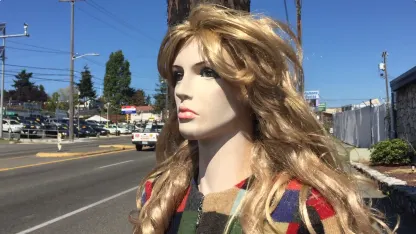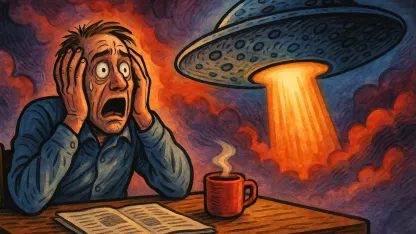Philips Hue Starter Kit 2nd Generation (Refurbished)



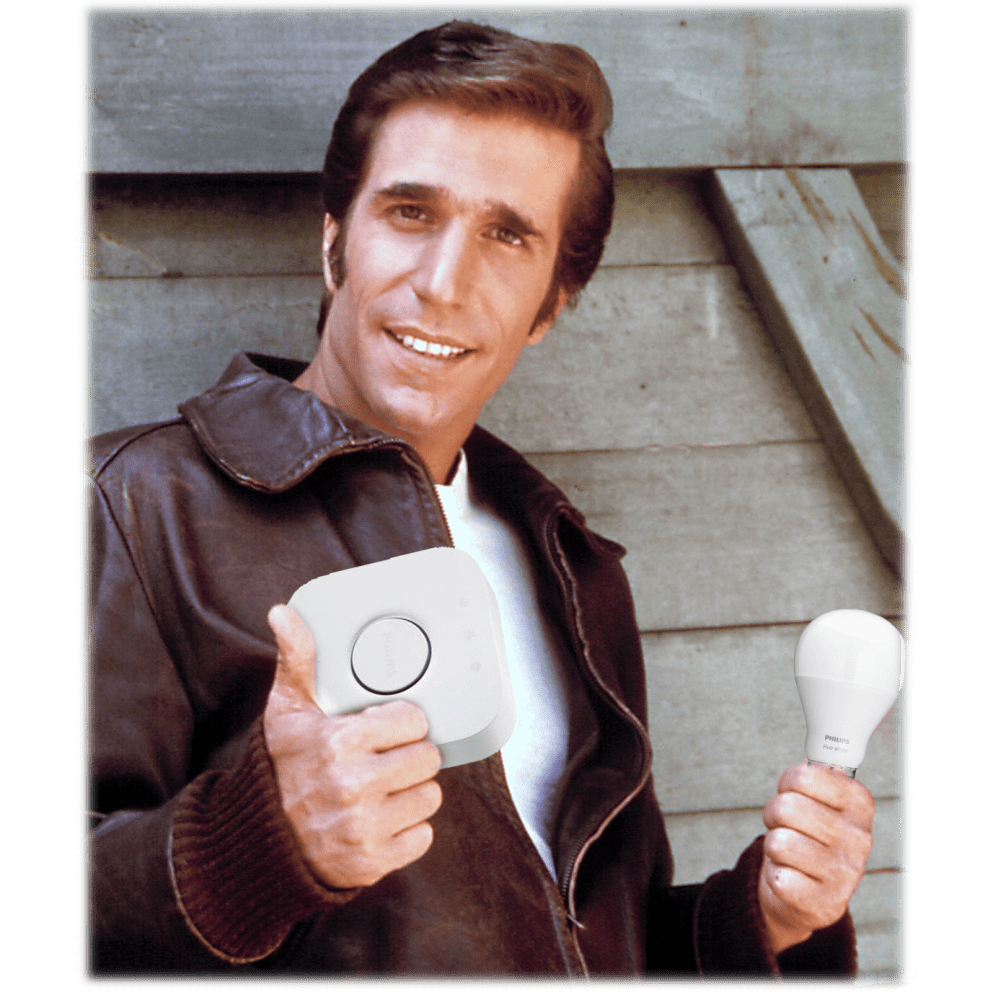
Our Take
- A hub and two bulbs to make your home (or at least your lamps) smart- You can set timers, control your lights with your phone, and generally feel like Mr(s). Smarty McSmarthome- Can be controlled with Alexa, Siri, or your own proprietary voice recognition AI technology- Works with Apple Homekit if this isn’t your first smarthome rodeo - White light only, and no we’re not going to make a joke about the recent Justice Department investigations into discrimination against whites – or did we just do it? - Model: 455287 (We don’t recommend setting this as your password or every cyberhacker on the planet will be breaking into your mainframe and dicking with your lights)
12 Sides of Sam Phillips
Today’s product is about a company named Philips offering a starter kit to change the way you see, and to shed new light on your home.
Today’s weekend playlist is about a producer named Phillips who started genres to change the way you hear, and to shed new light on-
OK, screw this contrived intro. I’m Meh contributor @JasonToon and I’m talking about Sam Phillips, the Memphis record producer who founded Sun Records and made stars - and more importantly, artists - out of a few guys you may have heard of named Elvis Presley, Johnny Cash, Roy Orbison, Jerry Lee Lewis, and Carl Perkins. You’ve heard all those songs many times and you know their greatness. Today I want to fill out the picture of Sam Phillips as constantly searching for interesting sounds, unique personalities, and raw expression.
Phillips is rightly renowned for his early disregard for racial boundaries, and it’s 100% true that without his enthusiasm for mixing “white” and “black” styles, American music would have taken a different and more boring course. But equally important was his idea of what he called “the perfect imperfect”, which serves pretty well as a description of rock ‘n’ roll itself. Here are 12 perfectly imperfect songs (also compiled in a YouTube playlist) recorded at Phillips’s studio. None of them got as big as “Hound Dog” or “Great Balls of Fire”, but they’re all part of the same amazing torrent of American creativity, channeled through a few humble rooms at 706 Union Avenue, Memphis, Tennessee.
“Rocket ‘88’” - Jackie Brenston and His Delta Cats (1951)
Was it the first rock ‘n’ roll record? Who cares? Nitpicking minutiae like that couldn’t be further from the hot, swingin’ spirit of the song itself, actually recorded by Ike Turner and His Kings of Rhythm but credited to singer Brenston.
“Just Walkin’ in the Rain” by the Prisonaires (1953)
If it seems like this song has more depth and angst than your everyday '50s harmony-group song, the Prisonaires were no ordinary vocal quintet. They were inmates at Tennessee State Penitentiary in Nashville. Quite a story, which at least one documentarian is trying to tell.
“Feelin’ Good” by Little Junior’s Blue Flames (1953)
Junior Parker later became better known for a smoother soul sound, but dig that yell while his Blue Flames surge into the chorus.
“Hold Me In Your Arms” by James Cotton (1954)
James Cotton was another early Sun signing who became famous doing something else, in his case playing harmonica. But here it’s his vocals that match the distorted intensity of Pat Hare’s astonishing guitar. Every other recording engineer on Earth in 1954 would have told Hare to turn the amp down. But Phillips knew “perfect imperfect” when he heard it.
“How Long” by Maggie Sue Wimberly (1954)
Phillips was more than capable of putting a country record together, too - but not “straight” country, because he didn’t do anything straight. The peaks on Maggie Sue Wimberly’s vocal strain at both the upper limits of her range and the volume limits of the tape, and that’s what gives “How Long” its impact.
“Don’t Do That” by the Five Tinos (1955)
Just five local college kids doo-wopping over a lowdown brass-heavy groove.
“I Need a Man” by Barbara Pittman (1956)
This teenage hellcat roar is as much a warning to potential suitors at it is a come-on: milquetoasts need not apply.
“Black Jack David” by Warren Smith (1956)
An ancient English ballad by way of Appalachian hill country, dressed up in rockabilly cat clothes.
“Flyin’ Saucers Rock ‘n’ Roll” by Billy Lee Riley & His Little Green Men (1957)
The title and band name make it sound like a novelty record, but Billy Lee Riley wasn’t kidding around, waxing a string of the wildest white-boy records of the era.
“Love is a Stranger” by the Sunrays (1958)
Not to be confused with the Beach Boys-affiliated '60s band, these Sunrays were Sun’s attempt at a more mature mainstream pop sound. Of course, they were too intense and original to dissolve in a warm bath with Perry Como. That’s none other than Barbara Pittman singing lead, showing her range extended beyond jailbait-in-heat growls.
“Jump Right Out of This Jukebox” by Onie Wheeler (1959)
Country journeyman Onie Wheeler drifted through Sun for one toe-tapping single in 1959, singing over his own overdubbed harmonica. Sadly, this song didn’t get the jukebox airplay hoped for in the lyrics.
“The Good Guy Always Wins” by Lance Roberts with the Gene Lowery Singers (1960)
As the original wild rockers were eclipsed by a new wave of lightweight teen pop idols, Sun took a shot at that sound, too. Again, they were too weird to succeed, which is why this song is so much more listenable today than any million-seller by Fabian.
Did good guy Sam Phillips win? Well, Sun Records and Sun Studio declined in the '60s, but Phillips parlayed his label earnings and his early investment in the Holiday Inn chain into a huge fortune, eventually owning several radio stations. He’s a member of the Rock ‘n’ Roll, Country, and Blues Halls of Fame. And his obliteration of artificial boundaries - between black and white, between perfect and imperfect - have made more great music possible than anyone could count. Not bad for a hustler from the middle of nowhere. See you next week!
Listen without prejudice to our past weekend playlists:




